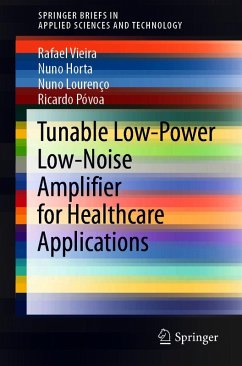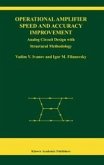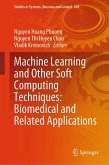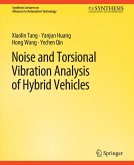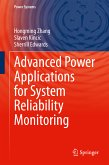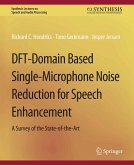Rafael Vieira, Nuno Horta, Nuno Lourenço, Ricardo Póvoa
Tunable Low-Power Low-Noise Amplifier for Healthcare Applications (eBook, PDF)
-23%11
40,95 €
53,49 €**
40,95 €
inkl. MwSt.
**Preis der gedruckten Ausgabe (Broschiertes Buch)
Sofort per Download lieferbar

20 °P sammeln
-23%11
40,95 €
53,49 €**
40,95 €
inkl. MwSt.
**Preis der gedruckten Ausgabe (Broschiertes Buch)
Sofort per Download lieferbar
Alle Infos zum eBook verschenken

20 °P sammeln
Als Download kaufen

53,49 €****
-23%11
40,95 €
inkl. MwSt.
**Preis der gedruckten Ausgabe (Broschiertes Buch)
Sofort per Download lieferbar

20 °P sammeln
Jetzt verschenken
Alle Infos zum eBook verschenken
53,49 €****
-23%11
40,95 €
inkl. MwSt.
**Preis der gedruckten Ausgabe (Broschiertes Buch)
Sofort per Download lieferbar
Alle Infos zum eBook verschenken

20 °P sammeln
Rafael Vieira, Nuno Horta, Nuno Lourenço, Ricardo Póvoa
Tunable Low-Power Low-Noise Amplifier for Healthcare Applications (eBook, PDF)
- Format: PDF
- Merkliste
- Auf die Merkliste
- Bewerten Bewerten
- Teilen
- Produkt teilen
- Produkterinnerung
- Produkterinnerung

Bitte loggen Sie sich zunächst in Ihr Kundenkonto ein oder registrieren Sie sich bei
bücher.de, um das eBook-Abo tolino select nutzen zu können.
Hier können Sie sich einloggen
Hier können Sie sich einloggen
Sie sind bereits eingeloggt. Klicken Sie auf 2. tolino select Abo, um fortzufahren.

Bitte loggen Sie sich zunächst in Ihr Kundenkonto ein oder registrieren Sie sich bei bücher.de, um das eBook-Abo tolino select nutzen zu können.
This book consists of the research, design and implementation, from sizing to layout with parasitic extraction and yield estimation, of a low-power, low-noise amplifier for biomedical and healthcare applications of bio-potential signals, particularly focusing on the electromyography and electrooculography. These signals usually operate in different broadbands, yet follow an impulse-shape transmission, hence being suitable to be applied and detected by the same receiver.
- Geräte: PC
- ohne Kopierschutz
- eBook Hilfe
- Größe: 6.58MB
Andere Kunden interessierten sich auch für
![Electrical Engineering (eBook, PDF) Electrical Engineering (eBook, PDF)]() Ralf KoriesElectrical Engineering (eBook, PDF)113,95 €
Ralf KoriesElectrical Engineering (eBook, PDF)113,95 €![Operational Amplifier Speed and Accuracy Improvement (eBook, PDF) Operational Amplifier Speed and Accuracy Improvement (eBook, PDF)]() Vadim V. IvanovOperational Amplifier Speed and Accuracy Improvement (eBook, PDF)121,95 €
Vadim V. IvanovOperational Amplifier Speed and Accuracy Improvement (eBook, PDF)121,95 €![Machine Learning and Other Soft Computing Techniques: Biomedical and Related Applications (eBook, PDF) Machine Learning and Other Soft Computing Techniques: Biomedical and Related Applications (eBook, PDF)]() Machine Learning and Other Soft Computing Techniques: Biomedical and Related Applications (eBook, PDF)178,95 €
Machine Learning and Other Soft Computing Techniques: Biomedical and Related Applications (eBook, PDF)178,95 €- -24%11
![Noise and Torsional Vibration Analysis of Hybrid Vehicles (eBook, PDF) Noise and Torsional Vibration Analysis of Hybrid Vehicles (eBook, PDF)]() Xiaolin TangNoise and Torsional Vibration Analysis of Hybrid Vehicles (eBook, PDF)48,95 €
Xiaolin TangNoise and Torsional Vibration Analysis of Hybrid Vehicles (eBook, PDF)48,95 € ![Advanced Power Applications for System Reliability Monitoring (eBook, PDF) Advanced Power Applications for System Reliability Monitoring (eBook, PDF)]() Hongming ZhangAdvanced Power Applications for System Reliability Monitoring (eBook, PDF)65,95 €
Hongming ZhangAdvanced Power Applications for System Reliability Monitoring (eBook, PDF)65,95 €- -23%11
![DFT-Domain Based Single-Microphone Noise Reduction for Speech Enhancement (eBook, PDF) DFT-Domain Based Single-Microphone Noise Reduction for Speech Enhancement (eBook, PDF)]() Richard C. HendriksDFT-Domain Based Single-Microphone Noise Reduction for Speech Enhancement (eBook, PDF)22,95 €
Richard C. HendriksDFT-Domain Based Single-Microphone Noise Reduction for Speech Enhancement (eBook, PDF)22,95 € ![Noise signals (eBook, PDF) Noise signals (eBook, PDF)]() Vitalii BabakNoise signals (eBook, PDF)113,95 €
Vitalii BabakNoise signals (eBook, PDF)113,95 €-
-
-
This book consists of the research, design and implementation, from sizing to layout with parasitic extraction and yield estimation, of a low-power, low-noise amplifier for biomedical and healthcare applications of bio-potential signals, particularly focusing on the electromyography and electrooculography. These signals usually operate in different broadbands, yet follow an impulse-shape transmission, hence being suitable to be applied and detected by the same receiver.
Dieser Download kann aus rechtlichen Gründen nur mit Rechnungsadresse in A, B, BG, CY, CZ, D, DK, EW, E, FIN, F, GR, HR, H, IRL, I, LT, L, LR, M, NL, PL, P, R, S, SLO, SK ausgeliefert werden.
Produktdetails
- Produktdetails
- Verlag: Springer International Publishing
- Seitenzahl: 88
- Erscheinungstermin: 19. März 2021
- Englisch
- ISBN-13: 9783030708870
- Artikelnr.: 61345180
- Verlag: Springer International Publishing
- Seitenzahl: 88
- Erscheinungstermin: 19. März 2021
- Englisch
- ISBN-13: 9783030708870
- Artikelnr.: 61345180
- Herstellerkennzeichnung Die Herstellerinformationen sind derzeit nicht verfügbar.
Rafael Vieira received the B.Sc. and M.Sc. degrees in Electrical Engineering from Instituto Superior Técnico (IST), University of Lisbon, Portugal, in 2019 and 2020, respectively. Since 2019, he has a research position at the Instituto de Telecomunicações, working on analog circuit design. At the same institutions, he is currently working toward the Ph.D. degree in Electrical Engineering in the area of analog and mixed-signal design for low-power and energy-efficient biomedical circuits and systems. His research interests are mainly in analog IC design for healthcare and biomedical applications as well as electronic design automation.
Nuno Horta (S¿89-M¿97-SM¿11) received the Licenciado, M.Sc., Ph.D. and Habilitation degrees in Electrical and Computer Engineering from Instituto Superior Técnico (IST), University of Lisbon, Portugal, in 1989, 1992, 1997 and 2014, respectively. In March 1998, he joined the IST Electrical and Computer Engineering Department where he is currently Associate Professor with Habilitation. Since 1998, he is, also, with Instituto de Telecomunicações, where he is the head of the Integrated Circuits Group. He has supervised more than 100 postgraduation works between M.Sc. and Ph.D. theses. He has authored or co-authored more than 150 publications such as books, book chapters, international journals papers and conference papers. He has also participated as Researcher or Coordinator in several national and European R&D projects. He was General Chair of AACD 2014, PRIME 2016 and SMACD 2016 and was Member of the organizing and technical program committees of several other conferences, e.g., IEEE ISCAS, IEEE LASCAS, DATE, NGCAS, etc. He is Associated Editor of Integration, The VLSI Journal, from Elsevier, and usually acts as Reviewer of several prestigious publications, e.g., IEEE TCAD, IEEE TEC, IEEE TCAS, ESWA, ASC, etc. His research interests are mainly in analog and mixed-signal IC design, analog IC design automation, soft computing and data science.
Nuno Lourenço received Licenciado, M.Sc. and Ph.D. degrees in Electrical and Computer Engineering from Instituto Superior Técnico, University of Lisbon, Portugal, in 2005, 2007, and 2014 respectively. He is with Instituto de Telecomunicações in Lisbon since 2005, where he now holds a postdoctoral research position. He has authored or co-authored over 80 works, including patents, books, book chapters, international journals and conferences papers. His current research interests include analog and mixed-signal IC design, electronic design automation tools, and artificial intelligence.
Ricardo Póvoa received the B.Sc., M.Sc. and Ph.D. degrees in Electrical Engineering from the Instituto Superior Técnico, University of Lisbon, Lisbon, Portugal, in 2011, 2013 and 2018, respectively. Since 2013, he has been with Instituto de Telecomunicações, Lisbon, where he is now Postdoctoral Researcher, researching on low-power analog and mixed-signal IC design applied to biometric applications and healthcare. In 2016, he joined the Marine Engineering Department, Escola Superior Náutica Infante D. Henrique, Lisbon, where he teaches the Naval Electronics and Automation course and the Marine Electrotechnical Engineering course. His current research interests include analog and mixed-signal circuit design, RF CMOS circuitry and applications, biomedical engineering and electronics and EDA.
Nuno Horta (S¿89-M¿97-SM¿11) received the Licenciado, M.Sc., Ph.D. and Habilitation degrees in Electrical and Computer Engineering from Instituto Superior Técnico (IST), University of Lisbon, Portugal, in 1989, 1992, 1997 and 2014, respectively. In March 1998, he joined the IST Electrical and Computer Engineering Department where he is currently Associate Professor with Habilitation. Since 1998, he is, also, with Instituto de Telecomunicações, where he is the head of the Integrated Circuits Group. He has supervised more than 100 postgraduation works between M.Sc. and Ph.D. theses. He has authored or co-authored more than 150 publications such as books, book chapters, international journals papers and conference papers. He has also participated as Researcher or Coordinator in several national and European R&D projects. He was General Chair of AACD 2014, PRIME 2016 and SMACD 2016 and was Member of the organizing and technical program committees of several other conferences, e.g., IEEE ISCAS, IEEE LASCAS, DATE, NGCAS, etc. He is Associated Editor of Integration, The VLSI Journal, from Elsevier, and usually acts as Reviewer of several prestigious publications, e.g., IEEE TCAD, IEEE TEC, IEEE TCAS, ESWA, ASC, etc. His research interests are mainly in analog and mixed-signal IC design, analog IC design automation, soft computing and data science.
Nuno Lourenço received Licenciado, M.Sc. and Ph.D. degrees in Electrical and Computer Engineering from Instituto Superior Técnico, University of Lisbon, Portugal, in 2005, 2007, and 2014 respectively. He is with Instituto de Telecomunicações in Lisbon since 2005, where he now holds a postdoctoral research position. He has authored or co-authored over 80 works, including patents, books, book chapters, international journals and conferences papers. His current research interests include analog and mixed-signal IC design, electronic design automation tools, and artificial intelligence.
Ricardo Póvoa received the B.Sc., M.Sc. and Ph.D. degrees in Electrical Engineering from the Instituto Superior Técnico, University of Lisbon, Lisbon, Portugal, in 2011, 2013 and 2018, respectively. Since 2013, he has been with Instituto de Telecomunicações, Lisbon, where he is now Postdoctoral Researcher, researching on low-power analog and mixed-signal IC design applied to biometric applications and healthcare. In 2016, he joined the Marine Engineering Department, Escola Superior Náutica Infante D. Henrique, Lisbon, where he teaches the Naval Electronics and Automation course and the Marine Electrotechnical Engineering course. His current research interests include analog and mixed-signal circuit design, RF CMOS circuitry and applications, biomedical engineering and electronics and EDA.
Introduction.- Related Work: General Overview of Instrumentation Amplifiers, Performance Metrics, Circuit Topologies and Techniques.- Biopotentials and Biometrics.- Circuit Design and Implementation: Theoretical Analysis and Design Strategies.- Design Implementation and Dedicated Techniques: Energy-Efficiency and Tuning Capabilities.- Layout Design and Simulation Results.- Conclusions.
Introduction.- Related Work: General Overview of Instrumentation Amplifiers, Performance Metrics, Circuit Topologies and Techniques.- Biopotentials and Biometrics.- Circuit Design and Implementation: Theoretical Analysis and Design Strategies.- Design Implementation and Dedicated Techniques: Energy-Efficiency and Tuning Capabilities.- Layout Design and Simulation Results.- Conclusions.
